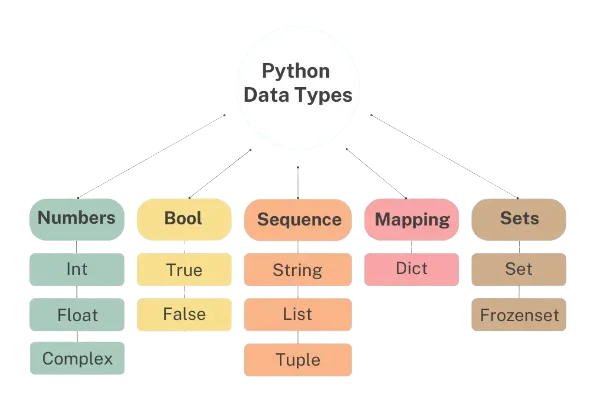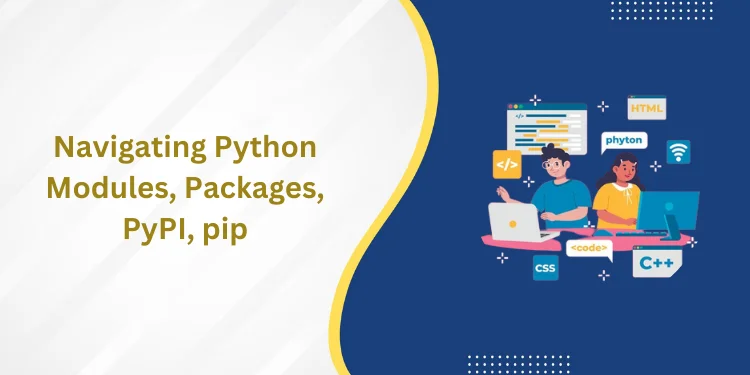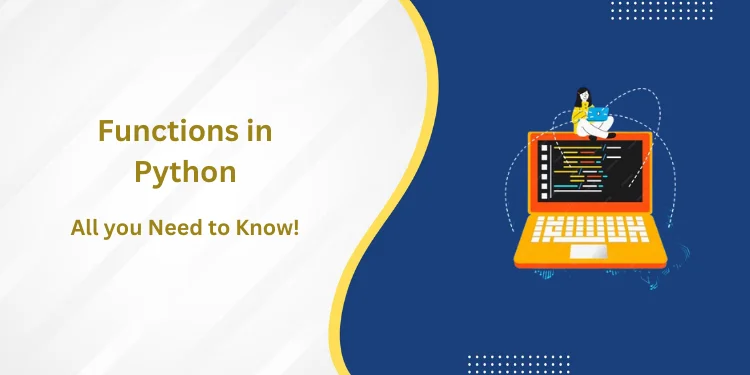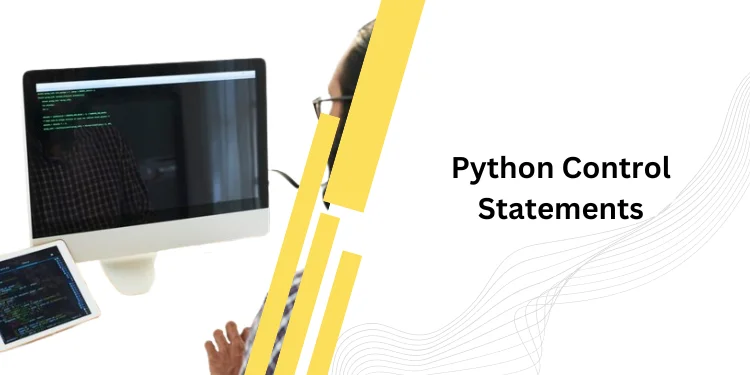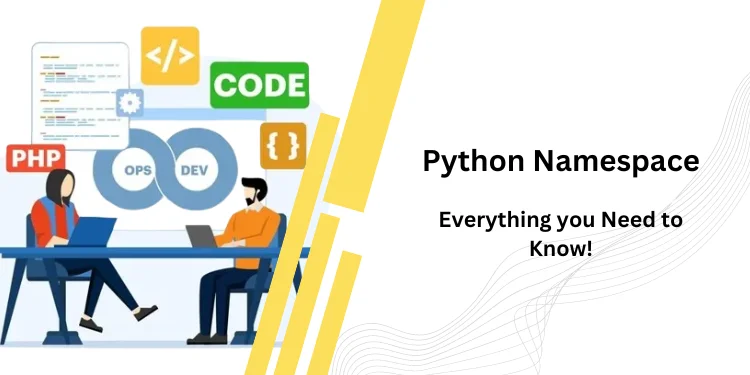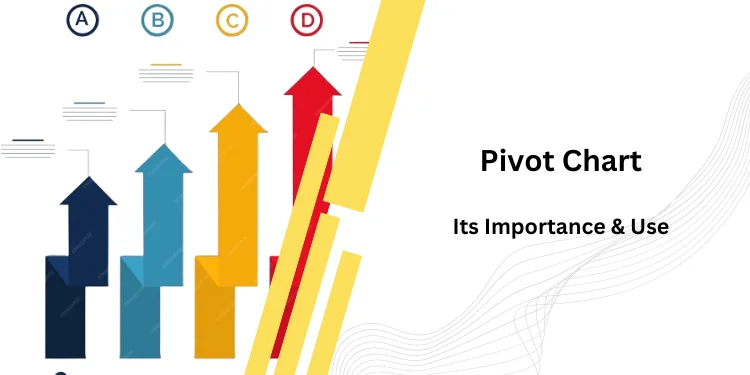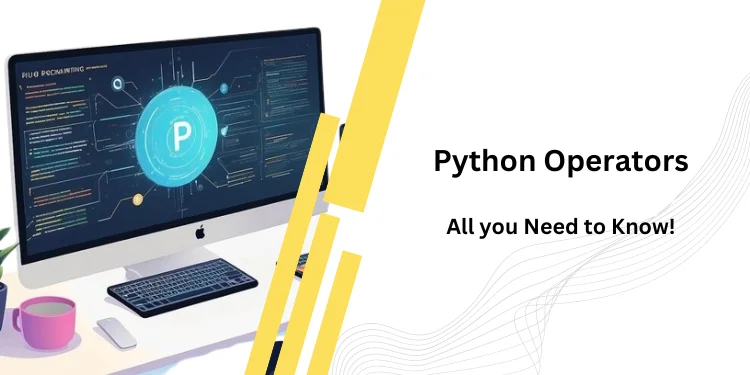Introduction to AWS Interview Questions and Answers
Cloud computing has now become a major driving force in the expansion of organizations of all kinds. Amazon Web Services is the world’s largest cloud computing firm by market share. AWS, an Amazon subsidiary, currently controls 31% of the market. AWS has emerged as the most popular cloud provider in such a circumstance. Given the industry’s massive skill gaps, there has been a huge need for AWS-certified cloud architects and specialists.
AWS enables the development, testing, deployment, and management of applications and services. All of this is done through Amazon’s data centers and hardware. AWS offers Infrastructure-as-a-Service (IaaS), Platform-as-a-Service (PaaS), and Software-as-a-Service (SaaS) solutions.
AWS may be used to create Virtual Machines that are equipped with processing power, storage capacity, analytics, networking, and device management. AWS provides a pay-as-you-go strategy, which allows you to avoid upfront fees and pay depending on monthly usage. Let’s check out the most frequently asked AWS Interview Questions.
AWS Interview Questions and Answers for Freshers
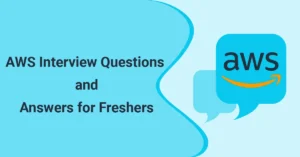
What is AWS?
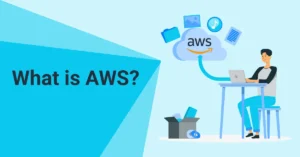
Amazon Web Services (AWS) is an acronym for Amazon Web Services. It is an Amazon service that uses a distributed IT infrastructure to provide various IT resources on demand. It offers infrastructure as a service, platform as a service, and software as a service, among other things. The interviewer can ask you these AWS Interview Questions to check your knowledge of AWS basics. It is one of the popular questions that come up when students search for what are the interview questions for AWS.
What do you understand about AWS? Explain in depth.
AWS offers cloud computing products and APIs to businesses and consumers all around the world. Aside from cloud services, AWS provides various services to corporations and people like processing power, database services, content distribution, and so on. Organizations must pay for AWS services utilized on a per-use basis.
Using AWS tools and services, a company may create a distributed computing environment. AWS, which was founded in 2002 (web services) and 2006 (cloud computing), is widely utilized in India by a wide range of organizations, enterprises, and people. It is also used by several government entities in India.
There are several cloud computing systems available on the market. However, AWS’s versatility and cost-effective cloud computing solutions distinguish it from the other platforms. AWS now offers over 200 services and solutions in domains such as IoT (Internet of Things), mobile development, data analytics, networking, etc.
Many of their services are not immediately available to end-users. However, AWS does provide developer APIs for them. AWS’s web services are also commonly utilized for commercial reasons through HTTP. The interviewer can ask you these AWS Interview Questions to check your in depth knowledge of AWS. These are also among AWS Interview Questions and Answers for Freshers.
What exactly is cloud computing?
Cloud computing gives consumers on-demand access to IT resources such as processing power, software, and storage. Users are not required to keep their physical resources on their premises in this case. There are no upfront fees in cloud computing since you pay for the resources you utilize. This service offers better flexibility and resource scalability in response to changing demands. The interviewer can ask you these AWS Interview Questions to check your knowledge of cloud computing. These are also among AWS Interview Questions and Answers for Freshers.
What are the AWS components?
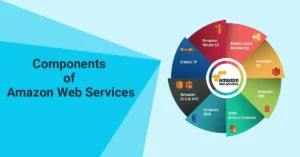
AWS’s primary components are as follows:
|
Simple Storage Service (S3) |
It is an Amazon Web Services (AWS) service that stores files. It is object-based storage, which means you may store photographs, word documents, PDF files, etc. The file size that may be saved in S3 ranges from 0 bytes to 5 TB. It is a limitless storage medium, so you can store as much data as you desire. S3 has a bucket where the files are stored. A bucket is similar to a folder in which files are stored. It is a universal namespace, which means that each name must be unique globally. Each bucket should have a unique name to produce a unique DNS address. |
|
Elastic Compute Cloud (ECC) |
Elastic Computation Cloud is a web service that delivers cloud-based resizable compute capability. You may scale up and down the compute capacity as your processing needs vary. It alters computer economics by letting you pay just for the resources that you utilize. |
|
Elastic Block Store |
Store of Elastic Blocks It offers a persistent block storage volume for use with EC2 instances in the Amazon Web Services cloud. To prevent component failure, EBS volumes are automatically duplicated within their availability zone. It provides the essential durability, availability, and low-latency performance to operate your applications. |
|
CloudWatch |
It is a service that monitors all of your AWS resources and apps in real-time. It captures and tracks metrics used to assess your resources and applications. |
|
Identity Access Management |
It is an Amazon Web Services service used to manage users and their degree of access to the Amazon Web Services administration console. It’s used to configure users, permissions, and roles. It allows you to provide access to various portions of the AWS platform. |
|
Simple Email Service |
Amazon Simple Email Service is a cloud-based email service that enables digital marketers and application developers to deliver marketing, notification, and transactional emails. This service is extremely dependable and cost-effective for businesses of all sizes who need to stay in touch with their clients. |
|
Route53 |
It is a DNS (Domain Name Service) service that is highly available and scalable. It enables developers and companies to route end users to internet applications in a dependable and cost-effective manner by converting domain names into numeric IP addresses. |
The interviewer can ask you these AWS Interview Questions to check your knowledge of AWS components. These are also among AWS Interview Questions for Developers.
What are AWS’s top product categories?
AWS’s major product categories are:
- Compute
- Database
- Networking and Content Delivery
- Analytics
- Machine Learning
- Security
- Identity
- Compliance
< li aria-level="1">Storage
The interviewer can ask you these AWS Interview Questions to check your knowledge of AWS’s top product categories. These are also among AWS Interview Questions for Developers.
What exactly is auto-scaling?
Auto-scaling is a unique feature that allows you to provision and start new instances as needed. It enables you to automatically raise or reduce resource capacity based on demand. The interviewer can ask you these AWS Interview Questions to check your knowledge of auto-scaling. These are also among AWS Interview Questions and Answers for Freshers.
What exactly is a data lake?
It is a centralized data repository that can hold any amount of structured and unstructured data. The essential feature of a data lake is the ability to apply numerous analytical tools to data, extract analytics, and reveal important insights without having to structure the data. Furthermore, data lakes store data from many sources such as corporate apps, mobile applications, and IoT devices. The interviewer can ask you these AWS Interview Questions to check your knowledge of the data lake. These are also among AWS Interview Questions for Developers.
What exactly is a VPC peering connection?
- A VPC peering link is a networking connection that connects one VPC to another VPC via a direct network path utilizing private IP addresses.
- Instances in different VPCs can interact with one another as if they were in the same network by using VPC peering connections.
- You can peer VPCs within the same AWS account and VPCs from other AWS accounts.
The interviewer can ask you these AWS Interview Questions to check your knowledge of VPC peering connection. The interviewer can ask you this question following the question what is VPC in AWS Interview Questions.
What exactly is an AMI?
Given below are the items included in an AMI.
- A template for the instance’s root volume.
- The launch permissions determine which AWS accounts have access to the AMI to deploy instances.
- A mapping of block devices defines which volumes will be attached to the instance when it is launched.
The interviewer can ask you these AWS Interview Questions to check your knowledge of AMI. These are also among AWS Interview Questions for Developers.
What exactly are key-pairs?
Amazon EC2 employs public-key cryptography to encrypt and decrypt login information. In public-key cryptography, the public key is used to encrypt the information, while the private key is used to decrypt the information at the receiver’s end. Key-pairs are the combination of a public key and a private key. Key pairs allow you to securely access the instances. The interviewer can ask you these AWS Interview Questions to check your knowledge of key-pairs. These are also among AWS Interview Questions and Answers for Freshers.
Explain CloudFront geo-targeting?
Geo-targeting is a concept that enables businesses to deliver customized information to their audience based on their geographic location without changing the URL. This allows you to produce personalized content for a specific geographical area’s audience while keeping their demands in mind. The interviewer can ask you these AWS Interview Questions to check your knowledge of cloudfront geo-targeting. It is one of the popular questions that come up when students search for what are the interview questions for AWS.
What is S3?
S3 stands for Simple Storage Service. You may use the S3 interface to store and retrieve any quantity of data at any time and from any location on the internet. S3’s payment strategy is “pay as you go.” The interviewer can ask you these AWS Interview Questions to check your knowledge of S3. It is one of the popular questions that come up when students search for what are the interview questions for AWS.
What exactly is Amazon EC2?
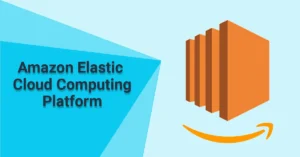
It is an abbreviation for Amazon Elastic Cloud Computing Platform. With the latest CPUs, storage, operating systems, and networking capabilities, it delivers a robust computing platform capable of handling any task. It makes the computing process easier for developers. And this service saves time by enabling fast scalability based on the needs. The interviewer can ask you these AWS Interview Questions to check your knowledge of Amazon EC2. It is one of the popular questions that come up when students search for what are the interview questions for AWS.
What exactly is sharding?
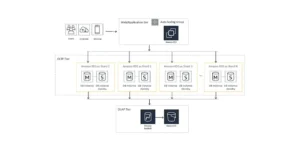
Sharding, often known as horizontal partitioning, is a relational database scale-out approach. This method divides the data into smaller chunks and distributes them among physically different database servers, each of which is referred to as a database shard. Because these database shards share the same hardware, database engine, and data structure, they generate identical performance. The interviewer can ask you these AWS Interview Questions to check your knowledge of sharding. These questions are also among AWS Interview Questions for DevOps.
Briefly describe the different types of cloud service models.
There are three kinds of cloud service models:
- IaaS:
It enables customers to access virtual computing resources through the internet. IaaS allows a service provider to host servers, storage, hardware, and other resources on behalf of consumers. IaaS solutions are highly scalable and can adapt to changing workloads. IaaS providers also manage their users’ activities such as system maintenance, backup, resilience, etc. - PaaS:
Platform as a Service (PaaS) enables service providers to give software and hardware to their customers. It is mostly utilized in the application development process, and PaaS allows users to obtain applications from service providers through the internet. Users do not need to own in-house software/hardware for application development/testing because PaaS allows them. - SaaS:
Software as a Service (SaaS) is a popular software delivery paradigm supplied by service providers. SaaS may be used to provide on-demand computer applications to users/customers. Because it is simple to administer and maintain fixes, the SaaS model is recommended.
The interviewer can ask you these AWS Interview Questions to check your knowledge of different types of cloud service models.
What exactly is AWS Lambda?
It is a computer service that enables you to run your code without having to manage servers. The Lambda function executes your code whenever it is required. You have to pay when your code is executed. The interviewer can ask you these AWS Interview Questions to check your knowledge of AWS Lambda. These questions are also among AWS Interview Questions for DevOps.
What exactly is an Elastic Transcoder?
To accommodate several devices with different resolutions, such as laptops, tablets, and smartphones, we must adjust the video’s resolution and format. This is
accomplished using an AWS Service tool called the Elastic Transcoder, a media transcoding in the cloud that allows us to perform precisely what we need to do. For corporations and developers, it is simple to use, cost-effective, and highly scalable. The interviewer can ask you these AWS Interview Questions to check your knowledge of Elastic Transcoder.
What exactly is Cross-Region Replication?
Cross-Region Replication is an AWS service that allows you to duplicate data from one bucket to another in the same or a different region. It supports asynchronous object copying, meaning objects are not copied instantaneously. The interviewer can ask you these AWS Interview Questions to check your knowledge of cross-region replication.
What exactly are EBS Volumes?
Elastic Block Store is a service that delivers a persistent block storage volume for use with Amazon Web Services’ EC2 instances. To prevent component failure, EBS volumes are automatically duplicated within their availability zone. It provides the essential durability, availability, and low-latency performance to operate your applications. The interviewer can ask you these AWS Interview Questions to check your knowledge of EBS volumes.
What services are available for creating a centralized logging solution?
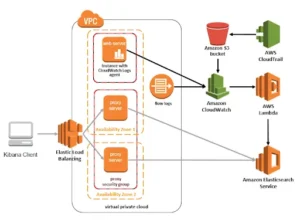
Amazon CloudWatch Logs, stored in Amazon S3 and then visualized with Amazon Elastic Search, is the essential services you can employ. To move data from Amazon S3 to Amazon ElasticSearch, you can utilize Amazon Kinesis Firehose. The interviewer can ask you these AWS Interview Questions to test your understanding of centralized logging solutions.
What precisely is Amazon EC2 Auto Scaling?
This AWS service automatically adds and removes EC2 instances in response to changing workload needs. Furthermore, this service detects unhealthy EC2 instances in the cloud architecture and, as a result, replaces them with new ones. Scaling is accomplished in this service using dynamic scaling and predictive scaling. It can be utilized independently or in tandem to manage workloads. The interviewer can ask you these AWS Interview Questions to test your understanding of EC2 Auto Scaling. These questions are also among AWS Interview Questions for DevOps.
In ELB, what are sticky sessions?
Session affinity is another term for a sticky session. Load balancers connect a user’s session to a specified destination during sticky sessions. As a result, all requests made by the user during that session will be forwarded to the same destination. It will give consumers a consistent experience. The cookie AWSELB is used here to specify the instance’s sticky session length. The interviewer can ask you these AWS Interview Questions to test your understanding of sticky sessions.
What exactly is AWS Elastic Beanstalk?
This AWS service enables the rapid and easy deployment and management of cloud-based apps. Developers must upload their code here; Elastic Beanstalk will handle the rest of the prerequisites automatically. Simply said, Elastic Beanstalk handles everything from capacity provisioning to auto-scaling and load balancing and also application health monitoring. The interviewer can ask you these AWS Interview Questions to test your understanding of Elastic Beanstalk. It is one of the popular questions that come up when students search for what are the interview questions for AWS.
Is it possible to upload a file larger than 100 megabytes to Amazon S3?
Yes, you may do so by utilizing AWS’s multipart upload function. Larger files can be submitted in different pieces that are uploaded individually using the multipart upload tool. You can also reduce upload time by uploading these portions concurrently.
After the pieces have been uploaded, they will be combined into a single object or file for creating the original file from which the parts were formed. The interviewer can ask you these AWS Interview Questions to test your understanding of Amazon S3.
Describe the benefits of AWS’s Disaster Recovery (DR) service
The following are some of the benefits of AWS’ Disaster Recovery (DR) service:
- AWS provides a cost-effective backup, storage, and disaster recovery solution, allowing businesses to save money on capital expenditures.
- Faster setup and increased productivity.
- AWS enables businesses to expand even in the face of seasonal swings.
- It replicates data from on-premises to the cloud in real-time.
- Ensures that files are quickly retrieved.
The interviewer can ask you these AWS Interview Questions to test your understanding of AWS DR service.
AWS Interview Questions for Intermediate Level
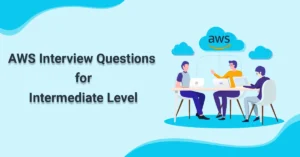
What logging capabilities does AWS Security offer?
The majority of AWS services include logging options. In addition, some of them, such as AWS CloudTrail, AWS Config, and others, include account-level logging. Let’s look at two services in particular:
- AWS CloudTrail: It is provided by Amazon Web Services. This service offers a history of each account’s AWS API calls. It also allows you to undertake AWS security analysis, resource change tracking, and compliance auditing. The best feature about this service is that you can set it up to send notifications via AWS SNS whenever fresh logs arrive.
- AWS Config: This service makes it easier for you to comprehend the configuration changes in your environment. This service creates an AWS inventory, including configuration history, a notice of configuration changes, and relationships between AWS resources. When new logs are given, they can also be configured to send information via AWS SNS.
The interviewer can ask you these AWS Interview Questions to test your understanding of AWS security offer.
What is the purpose of subnets?
Subnets are used to divide a massive network into smaller ones. Subnets can be developed for a variety of reasons. Subnets, for example, can help alleviate congestion by ensuring that traffic designated for a subnet stays within that subnet. This aids in the efficient routing of traffic, lowering the network’s load. The interviewer can ask you these AWS Interview Questions to test your understanding of subnets.
What exactly does AMI involve?
The following components make up an AMI:
- A root volume template for the instance.
- Launch permissions determine which AWS accounts have access to the AMI and can use it to launch instances.
- When the instance is launched, this block device mapping decides which volumes should be attached to it.
The interviewer can ask you these AWS Interview Questions to test your understanding of AMI. These questions are also among AWS Interview Questions for DevOps.
What are the various kinds of Instances?
The types of instances are as follows:
- Compute Optimized
- Memory-Optimized
- Storage Optimized
- Accelerated Computing
- General Purpose
The interviewer can ask you these AWS Interview Questions to test your understanding of AWS basics. This is one of the popular questions that come up when students search for what is AWS interview questions.
What is the max no. of buckets that may be created in S3?
You can create up to 100 buckets by default. The interviewer can ask you these AWS Interview Questions to test your understanding of S3.
What are the many types of load balancers available in EC2?
In EC2, there are three types of load balancers:
Application Load Balancer: These load balancers make application-layer routing decisions.
- Network Load Balancer: A network load balancer processes millions of requests per second and aids in transport layer routing decisions.
- Classic Load Balancer: Classic Load Balancer is primarily utilized in the EC2-Classic network for applications. It provides simple load balancing over several Amazon EC2 instances.
The interviewer can ask you these AWS Interview Questions to test your understanding of load balancers.
What exactly is DynamoDB?
DynamoDB is a NoSQL database. It is incredibly adaptable and reliable – plus, it can be linked with AWS! It provides quick and reliable performance as well as seamless scalability. You don’t have to worry about setup, hardware provisioning, and configuration, software patching, replication, or cluster scaling with DynamoDB. The interviewer can ask you these AWS Interview Questions to test your understanding of DynamoDB.
What exactly do you mean by VPC?
VPC stands for Virtual Private Cloud. It enables you to personalize your network configuration. A virtual private cloud (VPC) is a network that is conceptually separated from other networks in the cloud. It provides your private IP address range, internet gateways, subnets, and security groups. The interviewer can ask you these AWS Interview Questions to test your understanding of VPC basics. These questions are also among AWS Interview Questions for Java Developers.
What tools and strategies can you use in AWS to determine if you’re paying more than you should, and how can you fix it?
By using the following resources, you may ensure that you are paying the correct amount for the resources you are using:
- Check the Top Services Table: It is a dashboard within the cost management console that displays the top five most often utilized services. This will inform you of the money you are spending on the resources in question.
- Cost Explorer: There are cost explorer services that allow you to view and analyze your consumption charges for the previous 13 months. You can also obtain a cost prediction for the next three months.
- AWS Budgets: This gives you the ability to establish a budget for the services. It will also allow you to determine whether the current plan suits your budget and the specifics of how you use the services.
- Cost Allocation Tags: This aids in recognizing the resource that has cost the most in a given month. It allows you to monitor your AWS expenditures by organizing your resources and cost allocation tags.
The interviewer can ask you these AWS Interview Questions to test your understanding of tools and strategies. These questions are also among AWS Interview Questions for Java Developers. The interviewer can ask you this question following the question what is VPC in AWS Interview Questions.
Is there another tool outside the terminal for logging into the cloud environment?
The following are some resources that can assist you with logging into AWS resources:
- Putty
- AWS CLI for Linux
- AWS CLI for Windows
- AWS CLI for Windows CMD
- AWS SDK
- Eclipse
The interviewer can ask you these AWS Interview Questions to test your understanding of cloud Environments. This is one of the popular questions that come up when students search for what is AWS interview questions.
How can Amazon Route 53 maintain high availability while minimizing latency?
To offer high availability and minimal latency, Amazon Route 53 employs the following techniques:
- Globally Distributed Servers: Since Amazon is a global service, it has DNS servers worldwide. Any consumer submitting a query from anywhere in the world will be sent to a DNS Server near them that offers minimal latency.
- Dependency: Critical applications demand a high level of dependability, which Route 53 provides.
- Optimal Locations: Route 53 routes requests to the data center closest to the client making the request. AWS has data centers located all around the world. Depending on the requirements and configuration chosen, the data can be cached in different data centers situated in other parts of the world. Route 53 allows any server in any data center to respond if it has the necessary data. This allows the client to request to be served by the nearest server, minimizing the time it takes to serve.
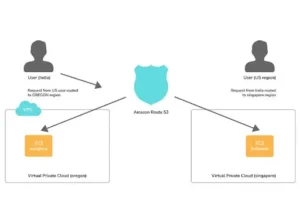
Requests from users in India are served from the Singapore Server, whereas requests from users in the United States are routed to the Oregon region, as shown in the above graphic. The interviewer can ask you these AWS Interview Questions to test your understanding of Route53.
What exactly is Redshift?
Amazon’s Redshift is a petabyte-scale data warehousing service. It’s simple, affordable, and scalable, and it can be fully customized to analyze all of your data using existing business intelligence tools. The interviewer can ask you these AWS Interview Questions to test your understanding of Redshift. The interviewer can ask you this question following the question what is VPC in AWS Interview Questions.
What is an EIP?
EIP (Elastic IP address) is a service offered by an EC2 instance. It is essentially a static IP address assigned to an EC2 instance. This address is connected with your AWS account, not with an EC2 instance. You may also detach your EIP address from your EC2 instance and assign it to another EC2 instance in your AWS account.
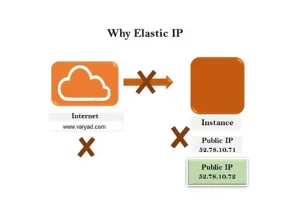
Let’s take an example to grasp the notion of EIP better:
Assume that the URL http://www.varyad.com links to an instance with a public IP address. When an instance is restarted, AWS selects another public IP address from the pool, and the prior public IP address becomes invalid. As a result, the original link between the website and the EC2 instance is no longer available.
To circumvent such a problem, an elastic IP address or a static address that does not change is utilized. The interviewer can ask you these AWS Interview Questions to test your understanding of Elastic IP. These questions are also among AWS Interview Questions for Java Developers. The interviewer can ask you this question following the question what is VPC in AWS Interview Questions.
What are the different forms of virtualization in AWS, and how do they differ?
In AWS, the three primary forms of virtualization are:
- Hardware Virtual Machine (HVM): It is a wholly virtualized hardware in which all virtual machines operate independently of one another. These virtual machines boot by running a master boot record in your image’s root block device.
- Paravirtualization (PV): The bootloader that boots the PV AMIs is called paravirtualization-GRUB. The PV-GRUB chain executes the kernel that was defined in the menu.
- Paravirtualization on HVM: PV on HVM enables operating systems to make use of the host’s storage and network I/O.
The interviewer can ask you these AWS Interview Questions to test your understanding of virtualization in AWS. This is one of the popular questions that come up when students search for what is AWS interview questions.
AWS Interview Questions for Advanced Level
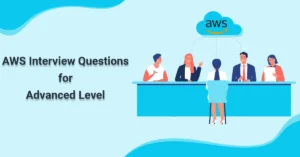
What is Elastic Load Balancing (ELB), and its many types?
Elastic Load Balancing (ELB) routes incoming application traffic to numerous destinations and virtual appliances. Destinations and virtual appliances may be located in one or more availability zones. You can secure your applications with capabilities like integrated certificate management, SSL/TLS decryption mechanisms, and user authentication in this service.
Load balancers are classified into three types:
- Application load balancer
- Gateway load balancer
- Network load balancer
The interviewer can ask you these AWS Interview Questions to test your understanding of ELB.
Enumerate some AWS services that are not region-specific
The following AWS services are not region-specific:
- IAM
- Route 53
- Web Application Firewall
- CloudFront
The interviewer can ask you these AWS Interview Questions to test your knowledge. These are also among AWS Interview Questions for Experienced Professionals.
What exactly is SQS?
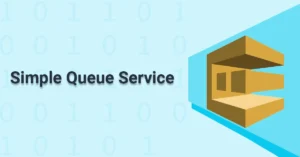
SQS is a Simple Queue Service. It is a distributed message queuing system that operates as a mediator between two controllers. It’s an online service that you have to pay for each time you use it. The interviewer can ask you these AWS Interview Questions to check your knowledge of SQS. These questions are also among AWS Interview Questions for 2 years experience professionals.
What are the most famously employed DevOps tools?
The following are some of the most often used DevOps tools:
- Chef, Puppet, Ansible, and SaltStack: It is a Deployment and Configuration Management Tools
- Docker: It is a Containerization Tool
- Git: This is a Version Control System Tool
- Jenkins: This is a Continuous Integration Tool
- Nagios: It is a Continuous Monitoring Tool
- Selenium: It is a Continuous Testing Tool
The interviewer can ask you these AWS Interview Questions to check your knowledge of DevOps tools. These are also among AWS Interview Questions for Experienced Professionals.
What’s the distinction between stopping and terminating an Amazon Elastic Compute Cloud instance?
While you may believe that stopping and terminating are the same thing, they are not. When you stop an EC2 instance, it goes into a halted state and executes a regular shutdown. When you terminate an instance, it is put into a stopped state, and any EBS volumes associated with it are erased and cannot be retrieved. The interviewer can ask you these AWS Interview Questions to check your knowledge of EC2. These questions are also among AWS Interview Questions for 2 years experience professionals.
What does it mean to have a hybrid cloud architecture?
It’s a type of architecture in which the workload is split into two halves, one for public load and the other for local storage. Between the two platforms, it combines on-premises, private cloud and third-party, and public cloud services. The interviewer can ask you these AWS Interview Questions to check your knowledge of hybrid cloud architecture. These questions are also among AWS Interview Questions for Java Developers. The interviewer can ask you this question following the question what is VPC in AWS Interview Questions.
What are the differences between the Solaris and AIX operating systems? Are they compatible with Amazon Web Services (AWS)?
- Solaris is an operating system that runs on the SPARC processor architecture, which is currently unavailable in the public cloud.
- AIX is an operating system that only runs on Power CPUs and not Intel CPUs, so AIX instances cannot be created in EC2.
- Because both operating systems have their own set of limitations, they are not currently supported by AWS.
The interviewer can ask you these AWS Interview Questions to check your knowledge of solaris and AIX OS. These are also among AWS Interview Questions for Experienced Professionals.
What password policies can you implement for your users?
The policies that can be set for user passwords are as follows:
- You can specify a minimum password length.
- You can require your users to include at least one number or special character in their password.
- Assigning specific character types’ requirements, such as uppercase letters, lowercase letters, numbers, and non-alphanumeric characters.
- You can set automatic password expiration, prevent old passwords from being reused, and request a password reset when they sign in to AWS again.
- When an AWS user allows their password to expire, you can have them contact an account administrator.
The interviewer can ask you these AWS Interview Questions to check your knowledge of password policies. These questions are also among AWS Interview Questions for 2 years experience professionals.
What are the DynamoDB consistency models?
In DynamoDB, there are two consistency models. The Eventual Consistency Model, for instance, maximizes the read throughput. It may, however, not reflect the outcomes of a recently finished write. Fortunately, all of the data copies typically approach consistency within a second. The second model is the Strong Consistency Model.
This model has a delay in writing the data, but it ensures that you always see the most up-to-date data when you read it. The interviewer can ask you these AWS Interview Questions to check your knowledge of DynamoDB consistency models. These questions are also among AWS Interview Questions for 2 years experienced professionals. This is one of the popular questions that come up when students search for what is AWS interview questions.
What kinds of query capabilities does DynamoDB provide?
GET/PUT operations in DynamoDB are supported by a user-defined primary key. It allows you to query on non-primary vital properties utilizing global secondary indexes and local secondary indexes, allowing for more flex
ible querying. The interviewer can ask you these AWS Interview Questions to check your knowledge of query capabilities in DynamoDB. These are also among AWS Interview Questions for Experienced Professionals.
In AWS, what are the Recovery Time Objective and Recovery Point Objective?
- Recovery Time Objective: It is the maximum allowable time between service disruption and restoration. This translates to a reasonable time frame during which the service may be unavailable.
- Recover Point Objective: It is the maximum amount of time that can elapse since the last data restoration point. It denotes the allowable amount of data loss between the latest recovery point and the service interruption.
The interviewer can ask you these AWS Interview Questions to check your knowledge of recovery time objective and recovery point objective. This is one of the popular questions that come up when students search for what is AWS interview questions.
What is an Amazon RDS maintenance window? Will your DB instance be accessible during maintenance?
The RDS maintenance window allows you to schedule DB instance updates, database engine version upgrades, and software patching. Only patches pertaining to security and durability are automatically scheduled. The maintenance window is set to 30 minutes by default, and the DB instance will remain operational throughout these occurrences, albeit performance may suffer slightly. The interviewer can ask you these AWS Interview Questions to check your knowledge of Amazon RDS maintenance window.
Your employer wants you to suggest a solution for connecting the company’s data center to the Amazon cloud network. What is your suggestion?
By setting up a Virtual Private Network between the data center and the VPC, the data center could be connected to the Amazon cloud network. A Virtual Private Network (VPN) allows you to create a secure conduit or tunnel from your premises or device to the AWS global network. The interviewer can ask you these AWS Interview Questions to check your knowledge of the Amazon cloud network.
What exactly is Amazon Lightsail?
Amazon Lightsail is a service that enables us to build and manage websites and applications more quickly and easily. It offers cost-effective virtual private server instances, storage, and databases. Not only that, but you can use this service to construct and eliminate development sandboxes, which will allow you to test new ideas without risk. The interviewer can ask you these AWS Interview Questions to check your knowledge of Amazon Lightsail.
What are the distinctions between Amazon Athena, Amazon Redshift, and Amazon EMR?
- Amazon Athena is a query service provided by Amazon.
- It enables the execution of ad hoc queries for data in Amazon S3 without servers.
- Amazon Redshift is a data warehousing service provided by Amazon. It delivers the fastest query performance for enterprise reporting and business intelligence workloads.
- The data processing framework is Amazon EMR. It aids in operating distributed processing frameworks such as Hadoop, Spark, and Presto.
The interviewer can ask you these AWS Interview Questions to check your knowledge of Athena, Redshift, EMR.
What distinguishes reserved instances from on-demand DB instances?
- When it comes to functionality, reserved instances and on-demand instances are the same. They are distinct in the manner in which they are billed.
- Reserved instances are acquired as one-year or three-year reservations, and in exchange, you receive very reduced hourly-based pricing compared to on-demand cases, which are invoiced hourly.
The interviewer can ask you these AWS Interview Questions to check your knowledge of DB instances.
Conclusion
If you’re headed to an AWS interview, this expert-prepared list of AWS interview questions and answers is all you’ll need. This unique set of AWS interview questions is created for those professionals interested in learning about Cloud Computing.
It will aid you in your career as you pursue various cloud job profiles such as AWS Solution Architect, AWS Engineer, DevOps Engineer, Cloud Architect, etc. You can also check out our other blogs Recursion in Data Structure, Data Mining Algorithms, Supply Chain Management Interview Questions, Types of Operator Overloading in C++, Angular vs AngularJS, and many more here.
Frequently Asked Question’s
1. How do I prepare for AWS interview?
Here are some of the crucial points to keep in mind:
- Investigate the company.
- Prepare to Discuss Specific Achievements.
- Prepare yourself to deal with adversity.
- Keep in mind that interviewers are taking notes on everything. Don’t be too quick.
- Don’t skimp on the fundamentals.
- Be truthful and tell them if you don’t know something.
- Get as specific as possible.
- Show your capability to communicate technical concepts.
- Prepare to answer the questions on a range of topics.
- Finally, Be Confident.
Let’s move on to the next FAQ for AWS Interview Questions.
2. How hard are AWS interviews?
The AWS interview questions procedure might be complicated. The good thing is that it is relatively consistent. Since we know the interview pattern ahead of time, it makes preparation much more straightforward and reduces surprises.
It doesn’t imply the interview will be easy (far from it! ), but it does mean you won’t be going in blind. If you’re preparing for an AWS interview, you can look over the AWS Questions and Answers we’ve put together for you. Let’s move on to the next FAQ for AWS Interview Questions.
3. Why do customers choose AWS?
- Simple to use: AWS is intended to offer application providers, ISVs, and vendors to swiftly and securely host their applications — whether existing or new SaaS-based apps.
- Cost-Effective: There are no long-term contracts or up-front obligations, and you pay for the compute power, storage, and other resources you utilize.
- Secure: To secure and fortify the infrastructure, AWS employs an end-to-end approach that includes physical, operational, and software safeguards.
Let’s move on to the next FAQ for AWS Interview Questions.
AWS Snowball is a service that delivers secure, robust devices that enable you to extend AWS computation and storage capabilities to your edge environments while also transferring data into and out of AWS.
These rigid devices are known as AWS Snowball or AWS Snowball Edge devices. AWS Snowball previously referred to an early hardware version of these devices, but that model has been replaced with upgraded hardware. Snowball Edge devices, which incorporate onboard compute and storage, are now used by the AWS Snowball service. Let’s move on to the next FAQ for AWS Interview Questions.
5. What is compute power in cloud?
The term “compute” in cloud computing refers to concepts and things linked to software computation. It is a catch-all word for the processing power, memory, networking, storage, and other resources required for a program’s computational success.
Applications that perform machine learning algorithms or 3D graphics rendering tasks, for example, require many gigabytes of RAM and multiple CPUs to function well. In this situation, the CPUs, RAM, and Graphic Processing Units needed will be referred to as compute resources, and the applications will be compute-intensive. Let’s move on to the next FAQ for AWS Interview Questions.
6. What is CloudFormation in AWS?
AWS CloudFormation is a tool that allows developers and companies to assemble a collection of connected AWS and third-party resources quickly and provision and manage them logically and predictably.
Developers may deploy and upgrade compute, databases, and many other resources in a straightforward, declarative manner that abstracts away the complexities of specific resource APIs. AWS CloudFormation is meant to manage resource lifecycles in a repeatable, predictable, and safe way while also providing automatic rollbacks, automated state management, and resource management across accounts and regions. Let’s move on to the next FAQ for AWS Interview Questions.
7. What are AWS interviews like?
- Interview over the phone:
These discussions will focus on your prior experiences, such as circumstances or obstacles you’ve faced and how you dealt with them.
You should concentrate on the subject at hand, deliver a well-structured answer, and provide metrics or data if applicable since many organizations are data-driven. When possible, refer to recent events. - Interview in person:
The interview loops consist of interviews with subject matter experts, future coworkers, and neutral parties known as bar raisers. The bar raiser is concerned with long-term vision rather than short-term employment needs and acts as an objective third party to guarantee that every candidate’s interview experience is open, accurate, and fair.
This mix of interviewers allows organizations to get a good understanding of your professional knowledge and also your fit for the business culture.
Let’s move on to the next FAQ for AWS Interview Questions.
- AWS Lambda is a server-less compute service. It operates the code in response to events and automatically manages the underlying compute resources for you.
- These events could involve status changes or updates, such as a user adding an item to a shopping basket on an e-commerce website.
- AWS Lambda can be used to augment other AWS services with custom logic or to build your backend services that operate at AWS scale, performance, and security.
- AWS Lambda executes code in reaction to a variety of events, including HTTP requests via Amazon API Gateway, changes to objects in Amazon Simple Storage Service (Amazon S3) buckets, table updates in Amazon DynamoDB, and state transitions in AWS Step Functions.
Let’s move on to the next FAQ for AWS Interview Questions.
a. Amazon Elastic Compute Cloud is a service that provides scalable computing power on the Amazon Web Services (AWS) Cloud.
b. Employing Amazon EC2 eliminates the need to invest in hardware up front, allowing you to develop and deploy apps more quickly.
c. Amazon EC2 enables the launch of as many or as few virtual servers as required, sets security and networking, and manages storage.
d. EC2 enables it to scale up or down in response to variations in demand or surges in popularity, minimizing the need to forecast traffic.
Let’s move on to the next FAQ for AWS Interview Questions.
10. What is data pipeline in AWS?
Data Pipeline is a web service that enables you to automate data movement and transformation. AWS Data Pipeline allows you to create data-driven workflows in which tasks are reliant on the completion of preceding tasks. You define the parameters for your data transformations, and AWS Data Pipeline enforces your established logic.





